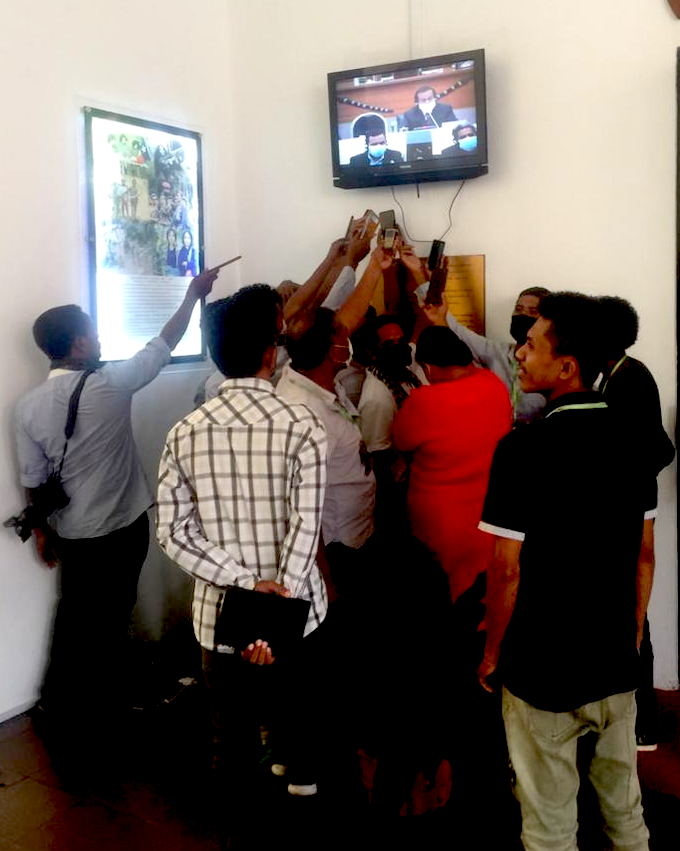
OPINION: By Antonio Sampaio in Dili
The Timor-Leste authorities have to improve significantly the conditions in which journalists are working to cover the Covid-19 coronavirus pandemic.
As the only foreign journalist in East Timor, I support the recommendations made today by the two associations of Timorese journalists.
In a statement sent to Lusa ndewsagency, the Association of Journalists of Timor Lorosa’e (AJTL) and the Timor-Leste Press Union (TLPU) have accused the country’s health authorities of not providing “adequate or credible information” over the past few weeks, making it difficult difficult to communicate important news to the society.
READ MORE: How a copyboy became Timor-Leste’s lone ranger foreign correspondent
Timor-Leste confirmed its first Covid-19 infection case last weekend.
There has been total irresponsibility, including the Ministry of Health, in the way they apply themselves, and in the way they are concerned, and over the rule of social distance.
I have mentioned this in the past, but it is vital that all the institutions change the way we work. Especially now that the state of emergency statement is coming.
My recommendations
I make these general recommendations:
- Announce press conferences in time;
- Distribute written communications every time;
- Communicate in more than one language so that the information can reach everyone in Timor-Leste;
- Distribute information at the same time to all journalists by Whattsapp or email;
- Ensure there is a spokesman to talk to the media that is always the one who transmits official information;
- Prepare to communicate in the distance with the media in case of isolation needs increase;
- Guarantee regular briefings where the information can be properly shared and where all questions can be asked and answered calmly. (Often journalists are in doubt that they represent the doubts of the population and they seek clarifications. Rejecting questions, as has been done by officials, is not acceptable.);
- Monitor social media to report fake news;
- Make information transparent to ensure everything is clear and people can get ready;
- Distribute all decisions that come out of the government, not only in the form of the short and insufficient communications of the Council of Ministers or in statements to journalists, but with detailed documents, especially in the state of emergency; and
- Ensure that journalists are protected and are not obliged to take on risky situations, such as having to share microphones to ask questions.
Collaboration can be useful between the authorities and journalists, but journalists are independent and cannot be used to pass on government information, especially when the information is not clear, or – as has already happened – it is wrong, to the rest of the world.
The photo I publish today has been taken in Timor’s Parliament. But it could be from so many other situations in the last few weeks.
We can’t keep working like this.
Antonio Sampaio is the Lusa newsagency correspondent in Dili. This personal view on journalist safety was expressed on his Facebook page.













































Yeo, great piece. I’ve seen in the past when I ran the UN radio programme how health kfficials refused tonprovide basic inormation on imoortant issues shch as dengue cases.
Comments are closed.